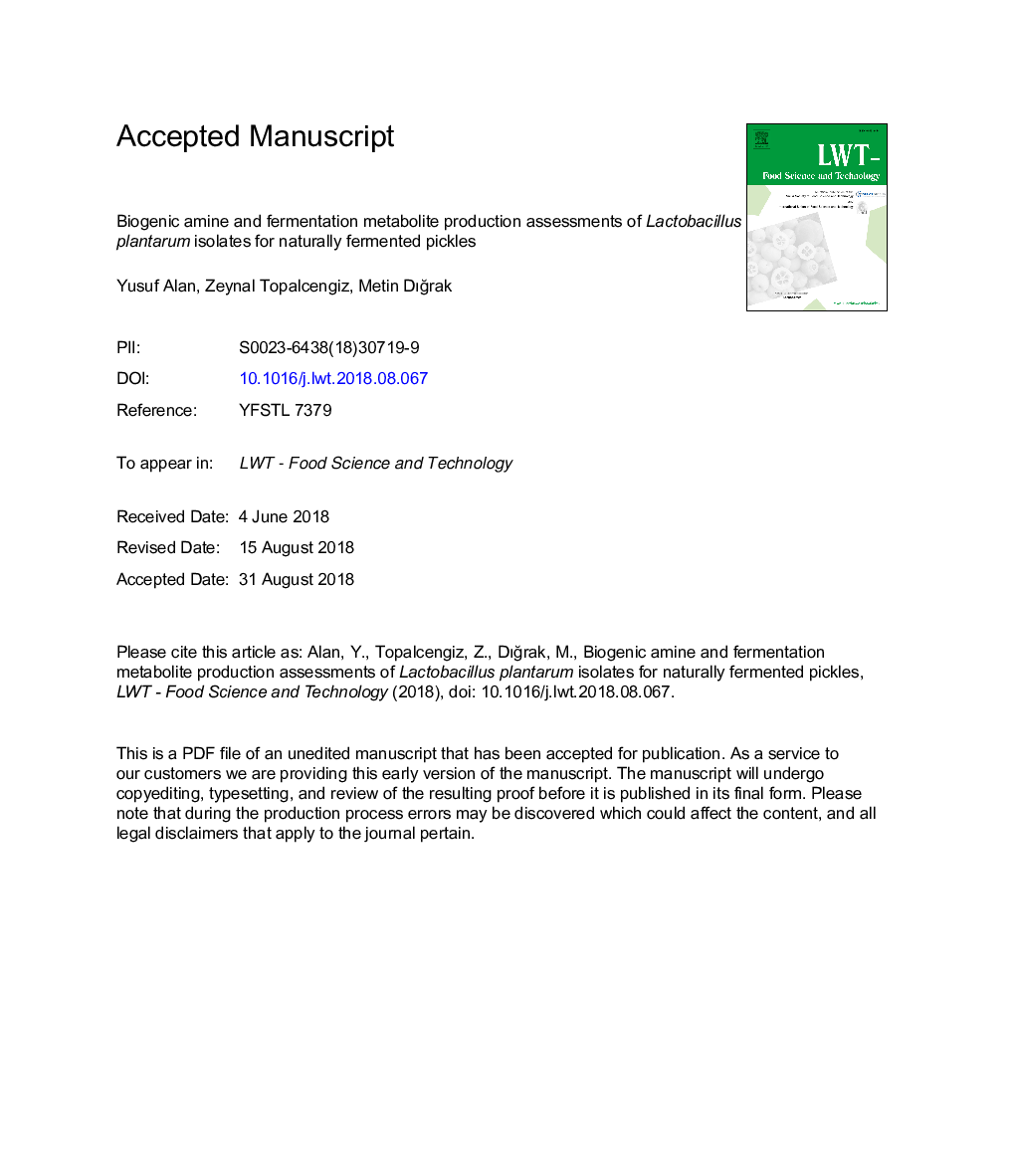| Article ID | Journal | Published Year | Pages | File Type |
|---|---|---|---|---|
| 10130419 | LWT - Food Science and Technology | 2018 | 31 Pages |
Abstract
This research aimed to assess the production of biogenic amines and fermentation metabolites by Lactobacillus plantarum isolates from randomly collected, naturally fermented pickles. Isolates were identified as L. plantarum strains based on the identification of the recA gene by colony PCR and 16S rRNA PCR amplification followed by sequencing. The production of three biogenic amines, cadaverine, putrescine and histamine, was measured in the identified strains with HPLC analysis. The fermentation metabolites formate, pyruvate, lactate, ethanol, and 2,3-butanediol were measured in the isolates with HPLC analysis. Forty-seven of the 78 isolates were identified as L. plantarum strains. Putrescine, cadaverine, and histamine were produced by almost all isolates. 9% of L. plantarum isolates produced total biogenic amines over 1000â¯mg/L. The biogenic amine concentration (mg/L) ranges for cadaverine, putrescine, and histamine were 13-298, non-detected-994, and non-detected-668, respectively. The total biogenic amine production was between 94 and 1332â¯mg/L. Five fermentation metabolites were detected with various concentration ranges (mg/mL): formate, 4.01-64.90; pyruvate, 0.10-0.98; lactate, 7.11-45.99; ethanol, 549.42-937.63; and 2,3-butanediol, 0.11-13.15. L. plantarum strains in naturally fermented pickles may produce biogenic amines, but most probably not at toxic limits.
Related Topics
Life Sciences
Agricultural and Biological Sciences
Food Science
Authors
Yusuf Alan, Zeynal Topalcengiz, Metin DıÄrak,
